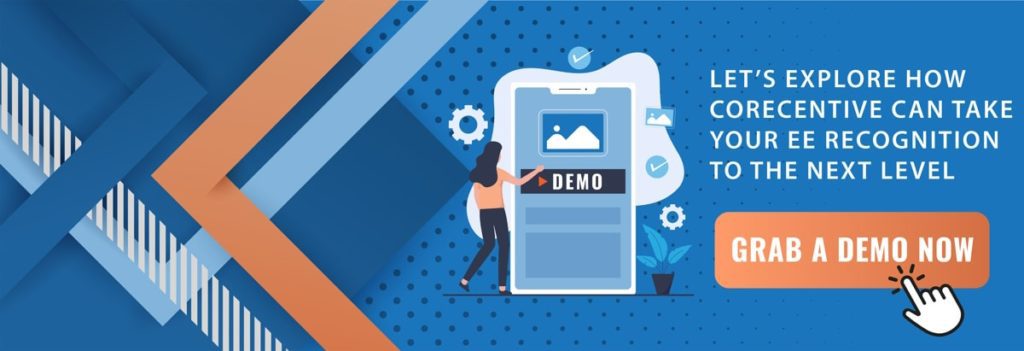Employee Incentives: Personalized, Agile, and Holistic
In an era of low unemployment, recruitment of top talent from within the ranks of the younger generation is particularly challenging. Your business must continue to seek out these workers to keep the pipeline of talent full. Once you have them, an employee incentives program can help you keep them.
Corporate leaders know that younger workers increasingly demand creative, unique reward packages that are tailored to meet their individual values, talents, and lifestyles. Unlike other generations, today’s younger recruits want more than generous sick leave, health insurance, or overtime pay. They seek out flexibility, recognition, and personalized incentives.
However, many organizations are behind in their endeavors to offer them an innovative alternative to the annual bonus. One survey by Deloitte, the Deloitte 2018 Global Human Capital Trends, shows that 37 percent of the companies rated incentives as very important, although a mere 9 percent felt ready to meet the challenge.
Current incentive programs must be tied to wellness, which can be a broad term. The well-being of your employees relates to their ability to perform in an agile, holistic way. Your company’s success may be increasingly tied to benefits such as flexible work hours or other non-conventional rewards that younger workers demand.
Seeking Out a Custom Experience
The Deloitte survey showed that these employees are looking for “more personalized, agile, and holistic employee rewards, including a focus on fair and open pay.”
Highly talented and skilled workers desire a customized experience rather than incentives that are the same for everyone. This can be a challenge in a diverse economy that values treating everyone the same.
In addition, younger workers expect to have a valued voice in making corporate decisions while achieving work/life balance with flexible schedules and locations. Younger workers also place a greater emphasis on finding employment with an organization that is aligned with their personal values.
Today’s demographics and economy are giving employees more leverage and more bargaining power. It is easier now to simply walk across the street to another employer.
Perks and Regular Pay Raises
Regular pay raises will always be an important benefit; however, an increasing number of companies are raising the bar on creative perks. Some offer employee incentives such as pet insurance or free cars. Others offer their top performing employees a buffet of employee incentives, from electronics to trips for two, that let the employee choose who to give the second ticket.
A higher salary is not always the prime differentiator for a prospect considering multiple job offers. Many times the incentive is the opportunity to work with industry thought leaders, challenging work, or a large opportunity to climb the corporate ladder. Other times the incentive is what differentiates the company. Does it offer childcare or bring your pet to work days?
Trust in the Workplace
If offering concrete benefits is difficult, developing intangible incentives is even trickier. The Great Place to Work Institute conducted an investigation that showed that companies trusted by their employees outperform their competition.
Trust in managers can be just as crucial as high pay.
The research also showed that when an employee has a satisfactory salary, other issues become more important. Satisfaction comes from rewards that are agile and personalized. One example cited in the research was a woman who had been working four days per week at home. She lived in what she considered to be her dream home and did not want to do the long commute each day to the office.
However, she was surprised when the IT security firm put her into a group of workers now required to work exclusively from the office. She quickly went to a competitor willing and able to meet her demands for flexibility, lifestyle, and desires. She took her knowledge, work ethic, and trusted clients along with her.
Beyond compensation, many companies simply do not know how to build an environment of trust or agility to meet the changing demands of employees. This takes a change in internal processes. The reality of the marketplace today is that the workforce expects more job changes. That expectation makes innovative benefits crucial in the effort to attract and retain top talent. Customized careers do not follow the typical pathways of yesteryear.
Technology and Education as Retention Solutions
Innovative technology and educational resources make personalized, agile employee incentives easier to offer. The Deloitte report points to new career models and the opportunity to build a wide skill set from various employers. The report also found that organizations focusing on creating an educational culture were frequently more profitable and had much higher employee retention rates.
This is an area that established companies may find more difficult. They have older technology and traditional work processes. The capability to offer flexible work arrangements or work-from-home days is hampered by a lack of advanced equipment.
Employees are increasingly tech-savvy. When they walk into a workplace with old technology, they may quickly look for an employer with better IT.
Shifting to agile, personalized employee incentives is now a must for employers that wish to remain competitive. Workers are easily walking over to rivals that go beyond offering a once-per-year pay review and bonus for good performance. Benefits must be aligned with workplace well-being and individual preferences.


